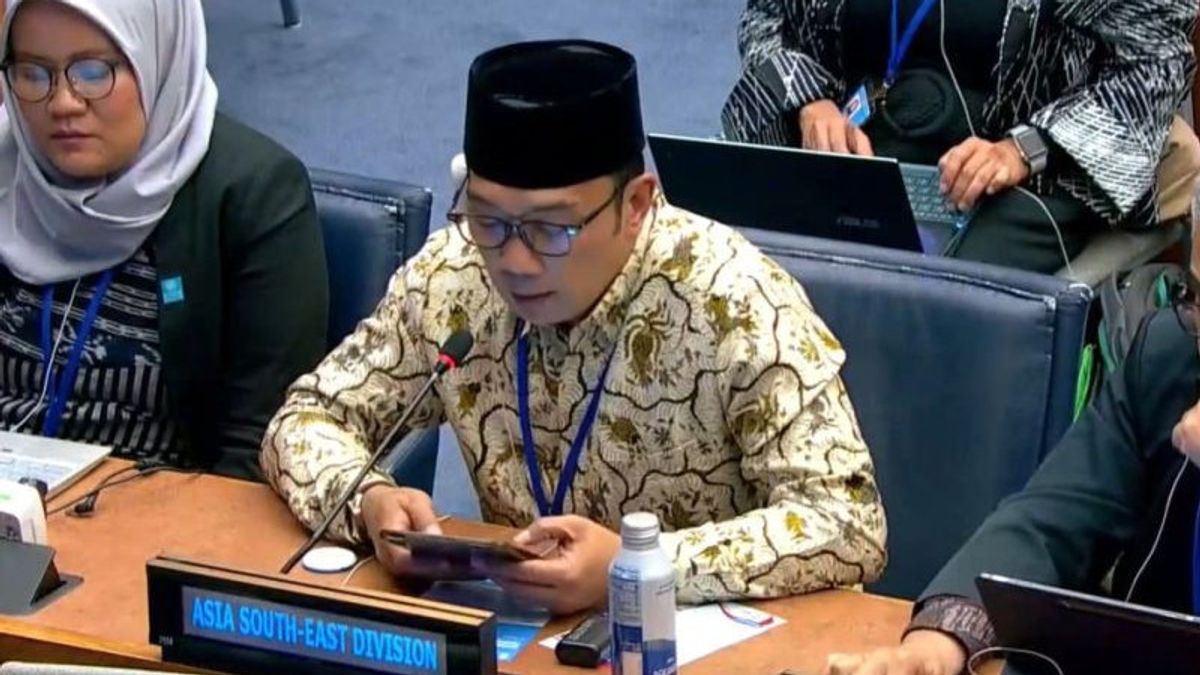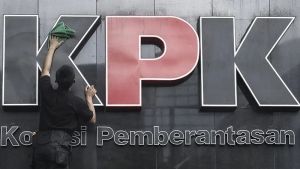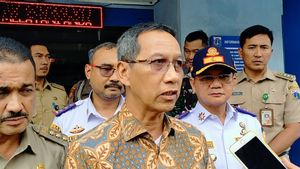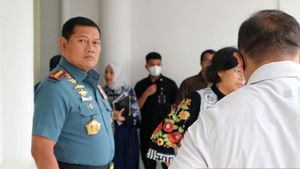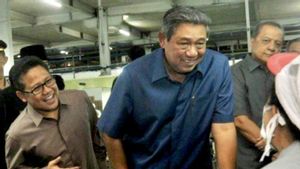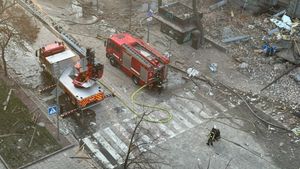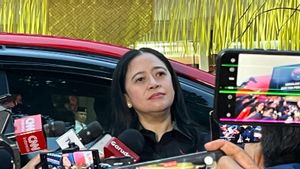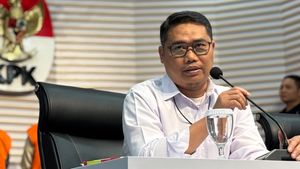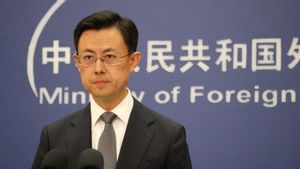West Java (Jabar) Governor Ridwan Kamil spoke about the use of toponimi as a tool to accelerate the handling of earthquakes in Cianjur Regency.
This was conveyed by Ridwan Kamil at the 2023 The 4th Meeting United Nations Group of Experts Geographical Name (UNGEGN) in New York, United States. The familiar man called Kang Emil said that his party represented the Southeast Asia Division speaking at Session 3 with the theme "Strengthening Relations, Links and Connections in Geographical Names Standardization and Sustainable Development and Pandemic Recovery". At that forum he presented an explanation entitled "Toponym Use in Response to the Earthquake Disaster in Cianjur Regency". Toponimi refers to language science that discusses the origin of the naming of places, regions, or other parts of the earth. On that occasion Ridwan Kamil said the provincial government (Pemprov) plays an important role in earth-like naming using toponymies. According to him. The preparation of standard naming is a major task that must be supported by political and cultural stakeholders. Last year our province was awarded by the Geospatial Information Agency (BIG) as a progregated province in creating big toponomi data with international guidelines targeting 5 million digital data," he said in a written statement, Thursday, May 4, confiscated by Antara. The West Java Provincial Government has helped the West Java Provincial Government in preserving many oral traditions in restoring local wisdom, folklore, as well as history. "The biggest challenge is the transformation from manual to digital. We managed to answer that challenge by coordinating 27 districts/cities to work together to achieve common goals," said Ridwan Kamil.
اقرأ أيضا:
Information that is owned in West Java through toponimi, he continued, is used for better land management, making better rural development and planning, as well as protecting natural resources. Last year, said Ridwan Kamil, the toponimi project was used as a tool for the West Java Provincial Government responding to the Cianjur earthquake. "So far, as long as I tried to carry out an in-depth assessment of the damage caused by the earthquake, then look for resources to evacuate quickly," he said. According to Ridwan Kamil, the first necessary in dealing with Cianjur earthquakes is data and with the toponymy, the data collected has become faster. "We can also make data cascade to distribute logistics, by combining all important coordinating aspects, using already owned toponimi data," said Ridwan Kamil. With the earth-shaped data from the application of the Earth's or SINAR Information System, the distribution of reinforcements and coordination of emergency situations is very fast and responsive. "As an example, so the epicenter of the Cianjur village earthquake is called Cieundeur. In English, the eundeur is shaking or swaying," said Ridwan Kamil. In other words, the people of Cieundeur Village have very long had awareness of the earthquake as seen from the names of their villages. "History, the old people in that area have named their area according to frequent earthquakes," said Ridwan Kamil.Desa or Cieundeur Village is in Warungkondang District. Geographically Ciieundeur is only 15 kilometers from Mount Gede and is to the east of Sesar Cimandiri. Ridwan Kamil considers the growing toponimi in West Java as a valuable information resource in disaster management. Credits for all parties who have participated in compiling the toponymies and are used in disaster management of Cianjur earthquakes.
"I hope that in the future, geographical name data based on local wisdom can increase even more practically. Not only limited to naming, but also helping in achieving common goals," he said. Ridwan Kamil's presentation received appreciation from the UNGEGN facilitator. According to UNGEGN, the use of an integrated toponimi in the SINAR application is a good example in the use of Rupa Bumi data. Appreciation also came from the chairman of the UNGEN forum. According to him, the use of toponymy is an important step in the midst of the difficulties of policymakers in dealing with disasters.
The English, Chinese, Japanese, Arabic, and French versions are automatically generated by the AI. So there may still be inaccuracies in translating, please always see Indonesian as our main language. (system supported by DigitalSiber.id)
